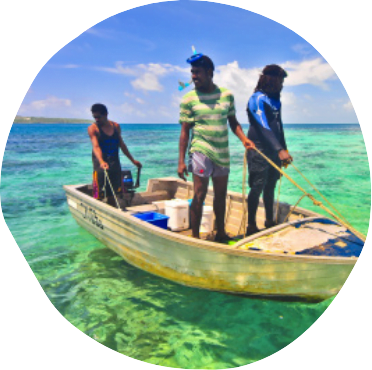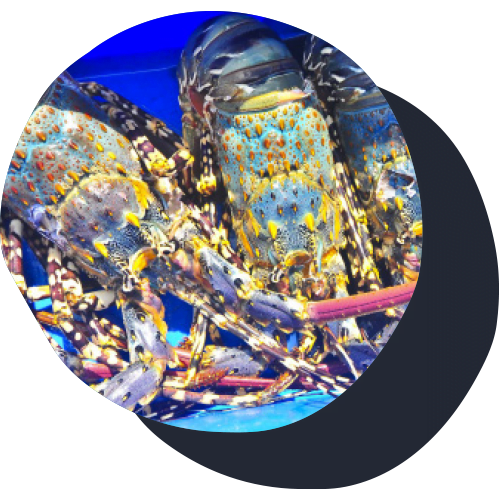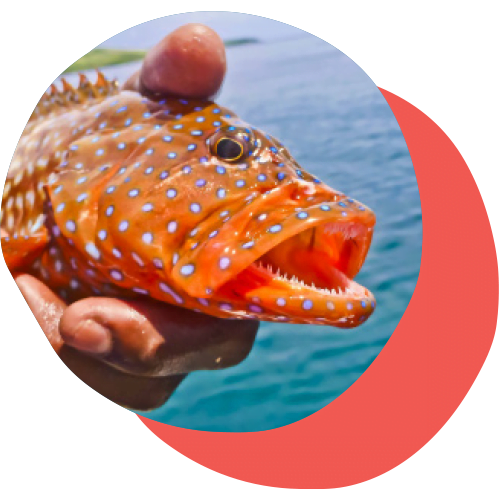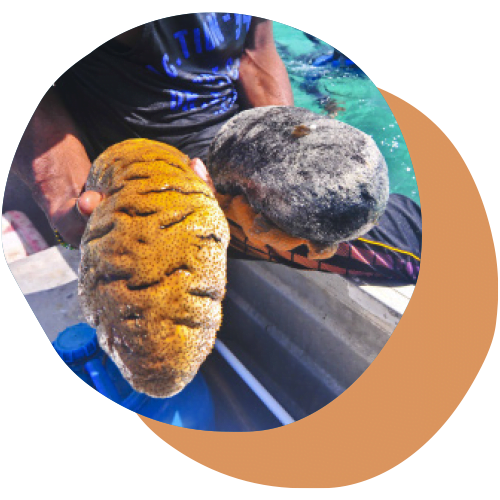Our Story
“Our wild fisheries are like gold set in a pearl environment with a diamond potential” All our seafood comes from this impossibly beautiful and virtually untouched place, the Torres Strait (Zenadth Kes).
– Napau Pedro Stephen, AM
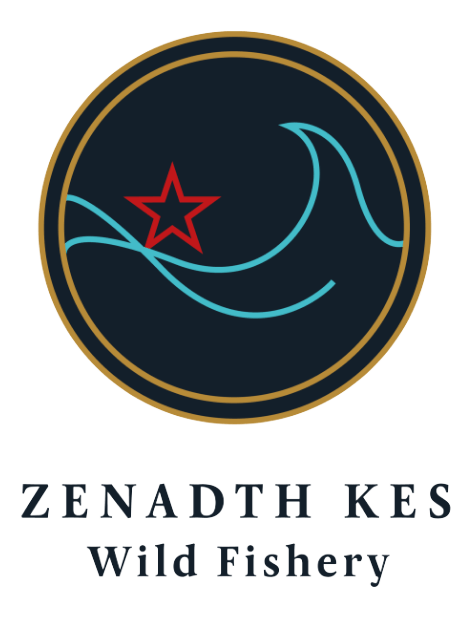
Look for this mark as proof of genuine Zenadth Kes Wild Fishery products.
Skills passed down through our families, we are guided by nature, the sea, the moon, Tagai (the stars), and the seasons.
Photo source: Tony Gordon, Tropical Rock Lobster Fishing
NATURAL
Pure clear waters far from any pollution
WILD
Rare but sustainably managed for the future
ANCIENT
Generations of traditional practices
REMOTE
A long journey but worth the wait
Torres Strait Islanders are sea-faring people
Torres Strait buai giz, pe gur le uridli (Meriam Mer) Torres Straitaw Lagalgal maluw mabaygal (Kala Lagau Ya).
We have strong cultural, social, and economic links to the sea; it is a part of our community.
Ailan Kastom
Our connection with our islands and sea country is governed by our unique Ailan Kastom (Island Custom).
Photo Source: Fraser Johnston, Thursday Island Sunset
Wild seafood from electric blue tropical waters
A treasure of the sea, highly prized by the most selective of culinary experts.
Meaty and juicy, firm flesh with fine flakes and few bones, which are easily removed.
Considered a delicacy in Asian cultures, in it’s dried form is known as Beche De Mer.
The story of Tagai
Tagai was a fisherman who, with his crew of 12, was preparing for a journey, but before the journey began, the crew consumed all the food and drink they planned to take. So then, Tagai strung the crew together in two groups of six and cast them into the sea, where their images became star patterns in the sky. These patterns can be seen in the star constellations of Pleiades and Orion.
Tagai is important for navigation, as the Southern Cross (his left hand) points in the direction of the south. When his left hand dips into the sea, islanders know that the wet season is about to begin.
Fishing for trade and food has been an important part of our history and it will continue to be a critical part of our future and the future of our children and grandchildren.
The Torres Strait was settled
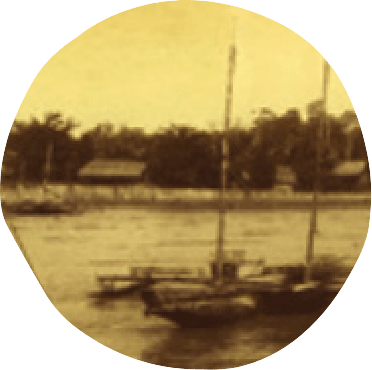
1860
Beche-de-mer fishing
The Torres Strait became the centre for commercial pearling and Beche-de-mer fishing in Australia.
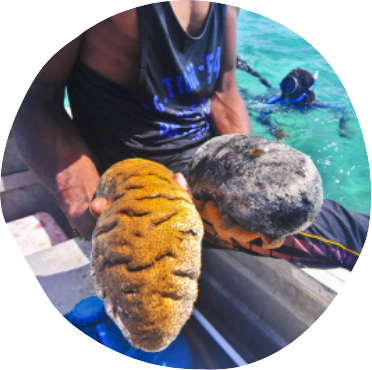
Tropical Rock Lobster fishing
Non-Indigenous commercial fishing for Tropical Rock Lobster began in the Torres Strait.
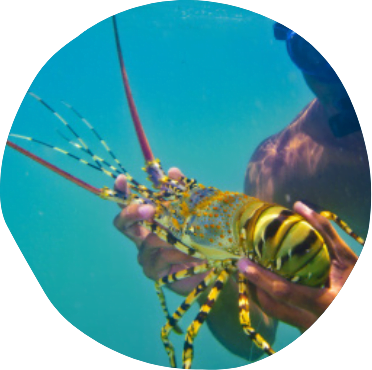
1978
The Torres Strait treaty was signed
Under the Treaty, Australia and Papua New Guinea are required to cooperate in the conservation and management of the commercial fisheries of the Torres Strait Protected Zone. This includes catch sharing for a number of commercially important species. There is also an agreement between the two countries about how much of the total catch each country is allowed to take.
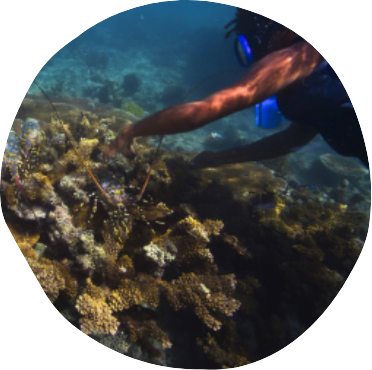
1985
Torres Strait Fisheries Act 1984 commences
The Torres Strait Fisheries Regulations 1985 commences operation. The Protected Zone Joint Authority was established and Torres Strait Treaty was ratified and comes into force.
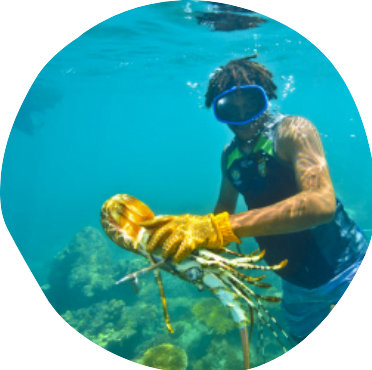
1999
Torres Strait Protected Zone Joint Authority
All commercial fisheries in the Australian area of the Torres Strait Protected Zone come under the management of the Protected Zone Joint Authority.
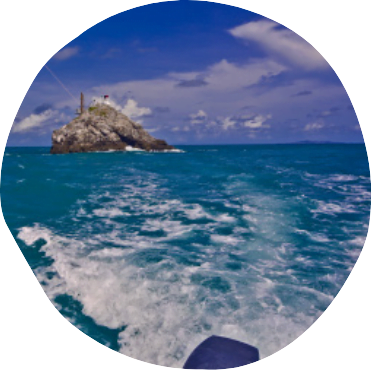
2013/2014
The Akiba Sea Claim Decision
The 2013 High Court decision provides legal recognition of the historic and cultural significance of marine resources to Torres Strait Islander and Aboriginal People and recognises a native title right to take fish and other marine resources for any purposes including commercial purposes. The decision supports the transition of fisheries to 100 percent Torres Strait Islander ownership, an aspiration that will work towards Closing the Gap targets in the Torres Strait while also acknowledging the cultural and Native Title significance of commercial fisheries and the economic opportunities they provide.
